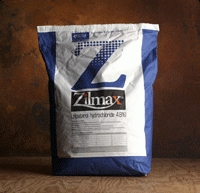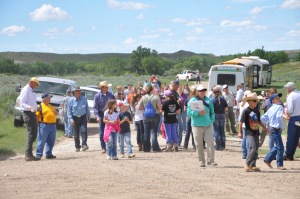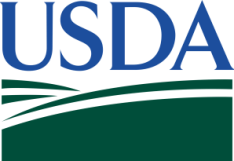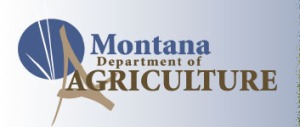During the 2013 MSGA Annual Convention, during the Beef Production and Marketing Committee, Dr. Marshall Streeter, Merck Animal Health, presented attendees with some great information and an update on the recent events developing around Zilmax, a beta agonist used in cattle finish feeding for more efficient lean beef production, being pulled from the market after claims of animal lameness by Tyson Foods. The following is an update on the Zilmax follow-up from Merck Animal Health shared to provide you more insight on the steps that go into evaluating safety of animal feed products.
During the last 90 days, Merck Animal Health, with the input and oversight of its Advisory Board, has worked to implement its Five-Step Plan to Ensuring Responsible Beef and has made considerable progress. The findings that come as a result of the plan will add to the significant amount of data that already exists for Zilmax® (zilpaterol hydrochloride), including numerous animal safety and well-being trials. Zilmax is a feed supplement approved by the FDA and other regulatory authorities. While we have made considerable progress, it is too early to determine when Merck Animal Health will return Zilmax back to the market in the United States and Canada.
“At Merck Animal Health, we continually evaluate our processes and procedures across the entire company to ensure that we maintain the best science-based practices and procedures for the health and well-being of animals,” says KJ Varma, BVSc, Ph.D., Senior Vice President Global R&D, Merck Animal Health. “Our five-step plan is a direct reflection of that commitment to science. It also reflects our commitment to working with our industry partners to maintain the highest standards of care for the health and well-being of cattle. We are pleased to be able to tap into the vast knowledge and expertise of professionals from throughout the industry to help us carry out this significant undertaking.”
The implementation of the five-step plan has included the following key components.
Merck Animal Health Advisory Board
Formed in August, the Merck Animal Health Advisory Board is comprised of representatives from packers, large, medium and small cattle feeder operations, cow-calf producers, veterinarians, academia and industry consultants. In addition to helping the company maintain an open dialogue on animal well-being, beta agonist use and related matters, the objectives of the Board include:
- Review all available animal safety and well-being research data on Zilmax
- Review the existing Zilmax Quality Assurance program (ZQA) and make recommendations, as needed
- Provide input on the certification and scientific audit processes; and
- Review and provide guidance on best management practices for using Zilmax
The Advisory Board has provided input on, reviewed and approved all initiatives in support of the plan.
Certification Process
To help further ensure safe and effective product use by customers, a formal certification process has been developed. As part of the certification, every feedyard team member, nutritionist and veterinarian who uses Zilmax or provides consultative services on feeding Zilmax to cattle must be trained annually on the proper use of the product.
The training will focus on safety practices, product handling, mixing protocols, cattle management, product inventory, record keeping and clean-out procedures. Every certified operation will also be required to pass an initial homogeneity test to ensure proper mixing practices, as well as four additional feed mix tests throughout the year. Before a feedyard can participate in the Zilmax Field Evaluations, the operation will need to be certified.
Zilmax Field Evaluations
In addition to implementing the certification process, the company has also worked with its Advisory Board to develop and finalize the protocol for the field evaluations for Zilmax-fed and control cattle (previously noted as “scientific audit”), which are expected to begin in Q1 2014.
Guiding principles of the field evaluations include:
- Observing cattle throughout the system – before and after receiving Zilmax – at the feedyard and at the packing plant
- Evaluating the mobility of cattle by trained third-party experts utilizing an established mobility scoring system
- Reviewing potential compounding factors, such as nutrition, transportation, receiving facilities, flooring surfaces, and cattle management and handling practices
The field evaluations will take place with the oversight of a well-known independent epidemiologist and veterinarian, who will serve as principal investigator and collect all data, analyze results and publicly communicate findings in support of the company’s commitment to transparency and communication.
“We at Merck Animal Health remain highly confident in the safety of Zilmax, which is supported by the results of more than 30 studies, totaling 65,000 cattle that were conducted by well-respected universities and third-party experts,” says Dr. Varma. “We believe the field evaluations we are conducting as part of the five-step plan will support the results of previous studies and the safety of the product, and we are confident that they will help create a greater understanding of the best management practices that are so vital to helping ensure the well-being of cattle.”
For additional information about the Five-Step Approach to Ensuring Responsible Beef, please visit: http://www.merck-animal-health-usa.com/news/2013-8-13.aspx.
ZILMAX has a withdrawal period 3 days prior to harvest. Not for use in animals intended for breeding. Do not allow horses or other equines access to feed containing zilpaterol. Do not use in veal calves. For complete safety information, refer to product label and ZILMAX website.
About Merck Animal Health
Today’s Merck is a global healthcare leader working to help the world be well. Merck Animal Health, known as MSD Animal Health outside the United States and Canada, is the global animal health business unit of Merck. Merck Animal Health offers veterinarians, farmers, pet owners and governments one of the widest range of veterinary pharmaceuticals, vaccines and health management solutions and services. Merck Animal Health is dedicated to preserving and improving the health, well-being and performance of animals. It invests extensively in dynamic and comprehensive R&D resources and a modern, global supply chain. Merck Animal Health is present in more than 50 countries, while its products are available in some 150 markets. For more information, visit www.merck-animal-health.com.
Merck Forward-Looking Statement
This news release includes “forward-looking statements” within the meaning of the safe harbor provisions of the United States Private Securities Litigation Reform Act of 1995. These statements are based upon the current beliefs and expectations of Merck’s management and are subject to significant risks and uncertainties. If underlying assumptions prove inaccurate or risks or uncertainties materialize, actual results may differ materially from those set forth in the forward-looking statements.
Risks and uncertainties include but are not limited to, general industry conditions and competition; general economic factors, including interest rate and currency exchange rate fluctuations; the impact of pharmaceutical industry regulation and health care legislation in the United States and internationally; global trends toward health care cost containment; technological advances, new products and patents attained by competitors; challenges inherent in new product development, including obtaining regulatory approval; Merck’s ability to accurately predict future market conditions; manufacturing difficulties or delays; financial instability of international economies and sovereign risk; dependence on the effectiveness of Merck’s patents and other protections for innovative products; and the exposure to litigation, including patent litigation, and/or regulatory actions. Merck undertakes no obligation to publicly update any forward-looking statement, whether as a result of new information, future events or otherwise. Additional factors that could cause results to differ materially from those described in the forward-looking statements can be found in Merck’s 2012 Annual Report on Form 10-K and the company’s other filings with the Securities and Exchange Commission (SEC) available at the SEC’s Internet site (www.sec.gov).

 Kay Dee® Feed Company, a leading manufacturer of livestock mineral and protein supplements has launched the Kay Dee SR 6.0 IGR Granular Mineral, a new complete mineral with Altosid® IGR to control horn flies1. Using Altosid IGR in a mineral supplement is convenient for producers, and horn flies do not build a resistance to IGR like they do with other methods of fly control: dust bags, pour-ons, ear tags, and sprays.
Kay Dee® Feed Company, a leading manufacturer of livestock mineral and protein supplements has launched the Kay Dee SR 6.0 IGR Granular Mineral, a new complete mineral with Altosid® IGR to control horn flies1. Using Altosid IGR in a mineral supplement is convenient for producers, and horn flies do not build a resistance to IGR like they do with other methods of fly control: dust bags, pour-ons, ear tags, and sprays.



















